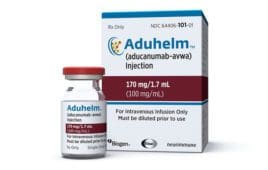
A new study has shed light on the mechanisms underlying the progression of prion diseases and identified a potential target for treatment.
Prion diseases are a group of fatal neurological disorders that includes Creutzfeldt-Jakob disease and bovine spongiform encephalopathy (“mad cow disease”). They are caused by the spread of “prions,” which are altered forms of normal cellular proteins. These abnormal molecules then interact with normal proteins to promote misfolding. While we understand that this process of converting normal to abnormal protein is what causes the symptoms of prion disease (including rapidly progressive dementia, seizures and personality changes), the exact mechanism of damage to the neuronal connections in the brain and spinal cord has been poorly understood.
Researchers from Boston University School of Medicine (BUSM) used a method they previously described for culturing nerve cells from the hippocampal region of the brain, and then exposing them to prions, to illustrate the damage to nerve cell connections usually seen in these diseases. They then added a number of different chemical compounds with known inhibitory effects on cellular responses to stressful stimuli, with the objective of identifying which pathways may be involved.
They found that inhibition of p38 MAPKα (an enzyme that typically responds to stress, such as ultraviolet radiation and heat shock) prevented injury to nerve connections and promoted recovery from the initial damage. Hippocampal nerve cells that had a mutation preventing normal function of p38 MAPKα were also protected, seeming to confirm the role the enzyme plays in this disease process.
David. A. Harris, MD, professor and chair of the Department of Biochemistry at Boston University School of Medicine and corresponding author of the study, sees these findings as a major breakthrough in trying to understand and treat these diseases. “Our results provide new insights into the pathogenesis of prion diseases, they uncover new drug targets for treating these diseases, and they allow us to compare prion diseases to other, more common neurodegenerative disorders like Alzheimer’s disease.”
These findings appear online in PLOS Pathogens.
SOURCE: Boston University
Filed Under: Neurological Disease




